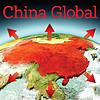
China Global
The German Marshall Fund
China’s rise has captivated and vexed the international community. From defense, technology, and the environment, to trade, academia, and human rights, much of what Beijing does now reverberates across the map. China Global is a new podcast from the German Marshall Fund that decodes Beijing’s global ambitions as they unfold. Every other week, host Bonnie Glaser will be joined by a different international expert for an illuminating discussion on a different aspect of China’s foreign policy, the worldview that drives its actions, the tactics it’s using to achieve its goals—and what that means for the rest of the world.
Categories: News & Politics
Listen to the last episode:
The BRICS+ summit was held in the Russian city of Kazan this past October. The original BRICS comprised four countries: Brazil, Russia, India, and China. The first meeting that they held was in 2009. South Africa joined in 2011. BRICS has now grown to include Egypt, Ethiopia, Iran, and the United Arab Emirates. The recent summit also invited 13 countries to the group as partner states. Countries that have expressed interest in joining BRICS include Indonesia, Malaysia, Thailand (which is a U.S. treaty ally), and Turkey (which is a member of NATO). As countries in the Global South flock to form an increasingly significant geopolitical bloc in which China has assumed a leading role, it is important to understand how BRICS+ fits into China’s foreign policy strategy and the role that the BRICS mechanism is likely to play going forward. To discuss these issues, host Bonnie Glaser is joined by Alexander Gabuev, director of the Carnegie Russia Eurasia Center which is based in Berlin. His research focuses on Chinese and Russian foreign policy.
Previous episodes
-
90 - China's Interest in an Expanded BRICSWed, 20 Nov 2024
-
89 - Assessing Drivers and Progress in China’s Climate PoliciesTue, 5 Nov 2024
-
88 - Deciphering China's Nuclear ModernizationTue, 22 Oct 2024
-
87 - Understanding China Through Chinese Intellectual DebatesTue, 8 Oct 2024
-
86 - China and Africa: 2024 FOCAC OutcomesTue, 24 Sep 2024
-
85 - China’s Engagement with New CaledoniaTue, 10 Sep 2024
-
84 - The Role of the Foreign Ministry in Shaping Chinese PolicyTue, 20 Aug 2024
-
83 - Drivers of China’s Policy Toward Second Thomas ShoalThu, 8 Aug 2024
-
82 - Takeaways from the 24th Shanghai Cooperation Organisation SummitTue, 23 Jul 2024
-
81 - Quantum Computing in US-China CompetitionTue, 9 Jul 2024
-
80 - Reviving the China-Japan-South Korea Trilateral Summit and Putin’s Visit to PyongyangTue, 25 Jun 2024
-
79 - China-Russia Trade Relations and the Limits of Western SanctionsTue, 11 Jun 2024
-
78 - Xi Jinping and China's Techno-Industrial DriveTue, 28 May 2024
-
77 - China's Expanding Ties with Latin America and the CaribbeanTue, 14 May 2024
-
76 - Illiberal Effects of Chinese Foreign Direct InvestmentTue, 30 Apr 2024
-
75 - Article 23: Implications for Hong KongTue, 16 Apr 2024
-
74 - Transatlantic Perspectives on China: Consensus and DivergenceTue, 2 Apr 2024
-
73 - China's Diplomacy in the Israel-Hamas War and Red Sea CrisisTue, 19 Mar 2024
-
72 - Mapping China's Influence in Myanmar's CrisisTue, 5 Mar 2024
-
71 - Flashpoints in the US-China RelationshipTue, 20 Feb 2024
-
70 - China’s Central Foreign Affairs Work Conference: Implications for PRC Foreign PolicyTue, 6 Feb 2024
-
69 - Beijing’s Response to Taiwan’s ElectionTue, 23 Jan 2024
-
68 - How Domestic Politics are Shaping US-China RelationsTue, 9 Jan 2024
-
67 - Balancing Assurances and Threats in the Case of Taiwan: A conversation with Bonnie Glaser, Jessica Chen Weiss, and Thomas ChristensenTue, 12 Dec 2023
-
66 - EU-China Relations on the Eve of the 24th Bilateral SummitTue, 21 Nov 2023
-
65 - China’s Response to the Israel-Hamas WarTue, 7 Nov 2023
-
64 - China’s Military Diplomacy and its Quest for Bases AbroadTue, 24 Oct 2023
-
63 - The Philippines-China Row Heats UpTue, 10 Oct 2023
-
62 - Unpacking China’s New Standard MapTue, 26 Sep 2023
-
61 - BRICS in China's Foreign Policy AgendaTue, 12 Sep 2023
-
60 - Shakeup in PLA Rocket ForceTue, 29 Aug 2023
-
59 - Centrality of Artificial Intelligence in US-China CompetitionTue, 15 Aug 2023
-
58 - China’s Role in Critical Mineral Supply ChainsWed, 2 Aug 2023
-
57 - Interpreting China’s New Foreign Relations LawTue, 18 Jul 2023
-
56 - US-China Relations Following Blinken’s Beijing VisitTue, 4 Jul 2023
-
55 - China's Unprofessional Intercept in the Taiwan StraitTue, 20 Jun 2023
-
54 - Evolving Switzerland-China RelationsTue, 6 Jun 2023
-
53 - China's Rise in the Global Digital SpaceTue, 23 May 2023
-
52 - China's Role in Developing Country Debt RestructuringTue, 9 May 2023
-
51 - China’s Industrial Policy and SemiconductorsTue, 25 Apr 2023
-
50 - Decoding the Vocabulary of Chinese Foreign PolicyTue, 11 Apr 2023
-
49 - China's Role in the US Fentanyl CrisisTue, 28 Mar 2023
-
48 - China and AustraliaTue, 14 Mar 2023
-
47 - US-China Competition in AfricaTue, 28 Feb 2023
-
46 - Chinese Surveillance BalloonTue, 14 Feb 2023
-
45 - China and North KoreaWed, 1 Feb 2023
-
44 - China’s Shifting Foreign PolicyThu, 19 Jan 2023
-
43 - China and the Middle EastWed, 4 Jan 2023
-
42 - China’s Energy SecurityFri, 16 Dec 2022
-
41 - China’s Role in the United NationsThu, 1 Dec 2022























